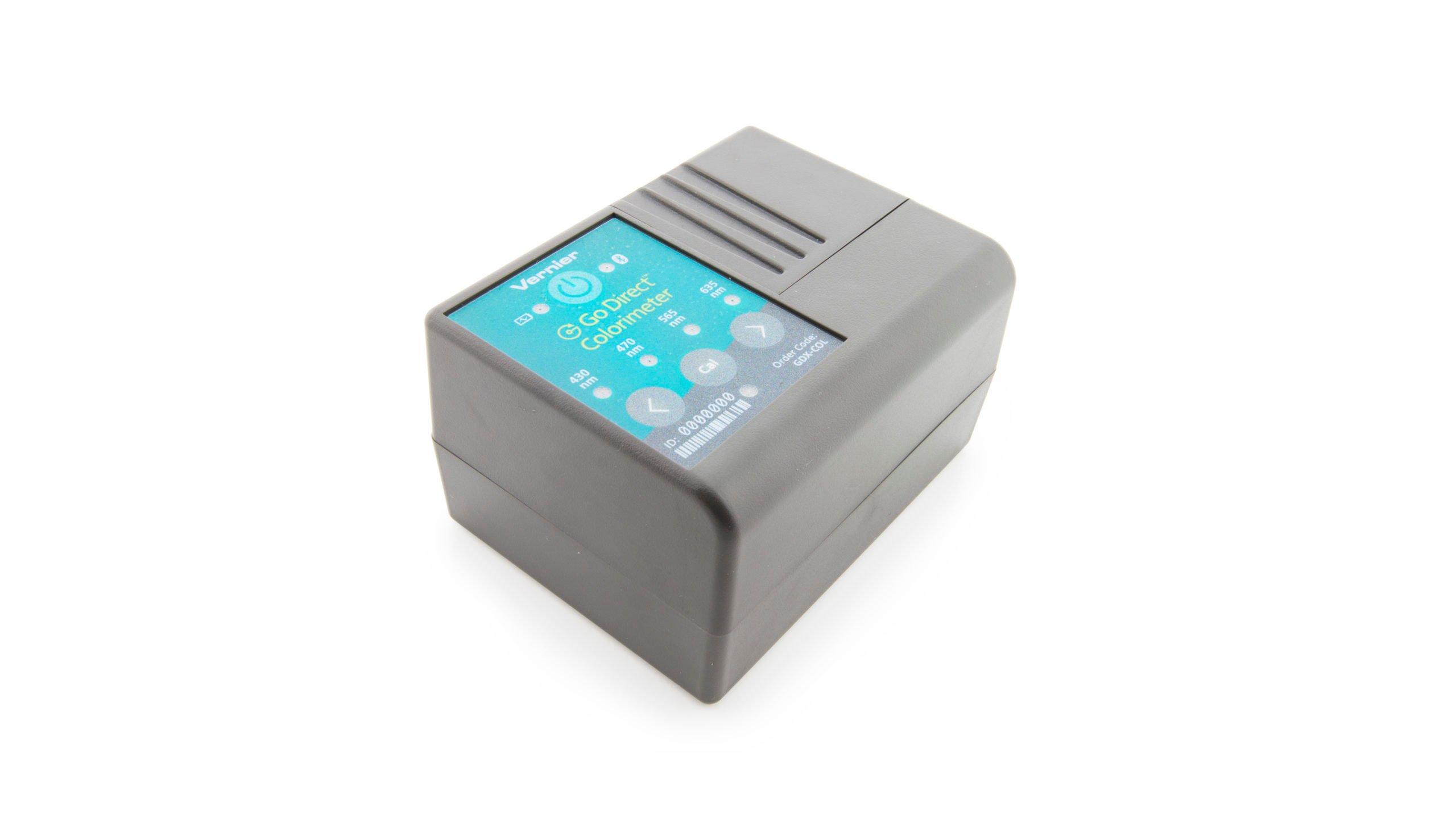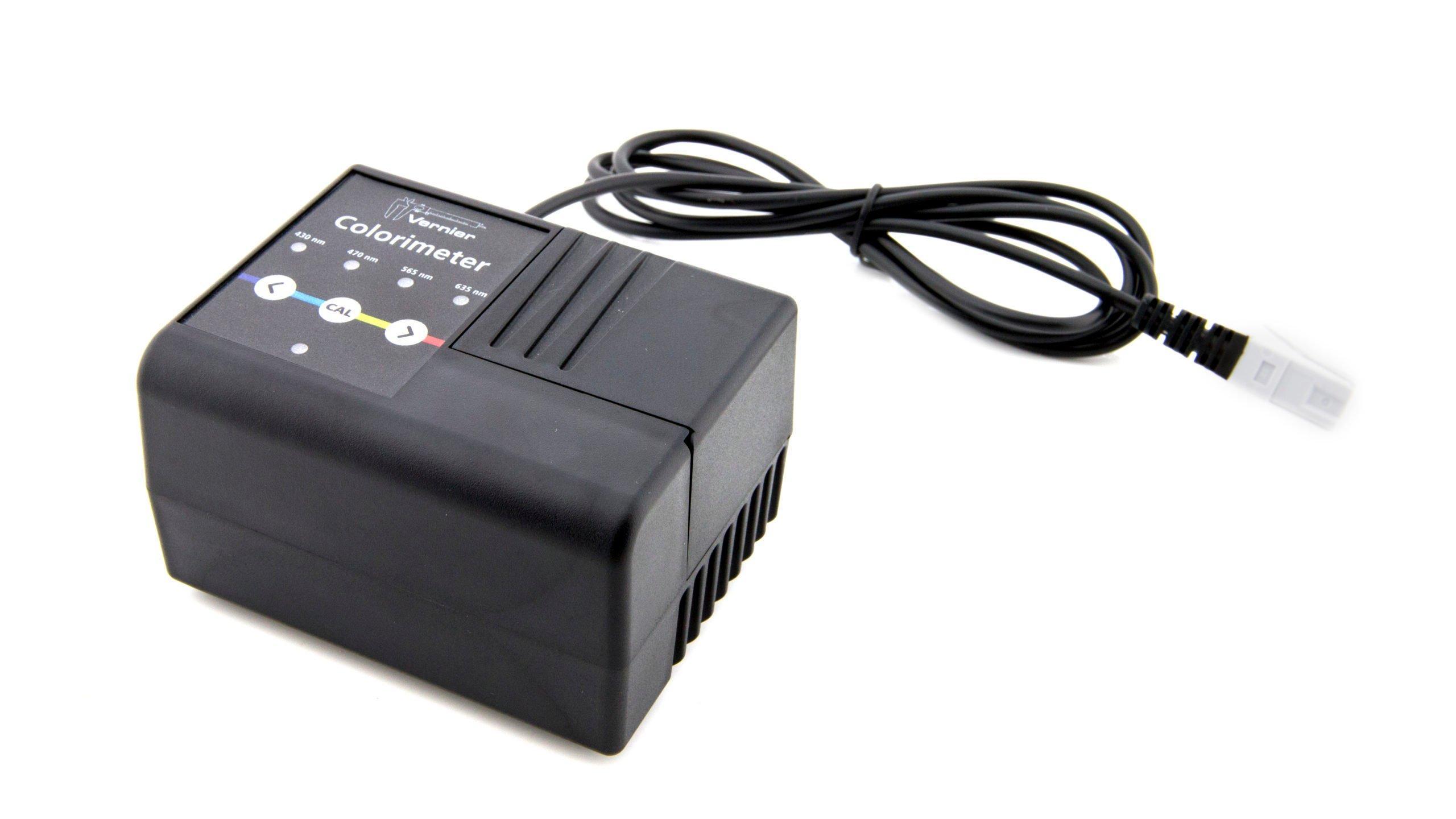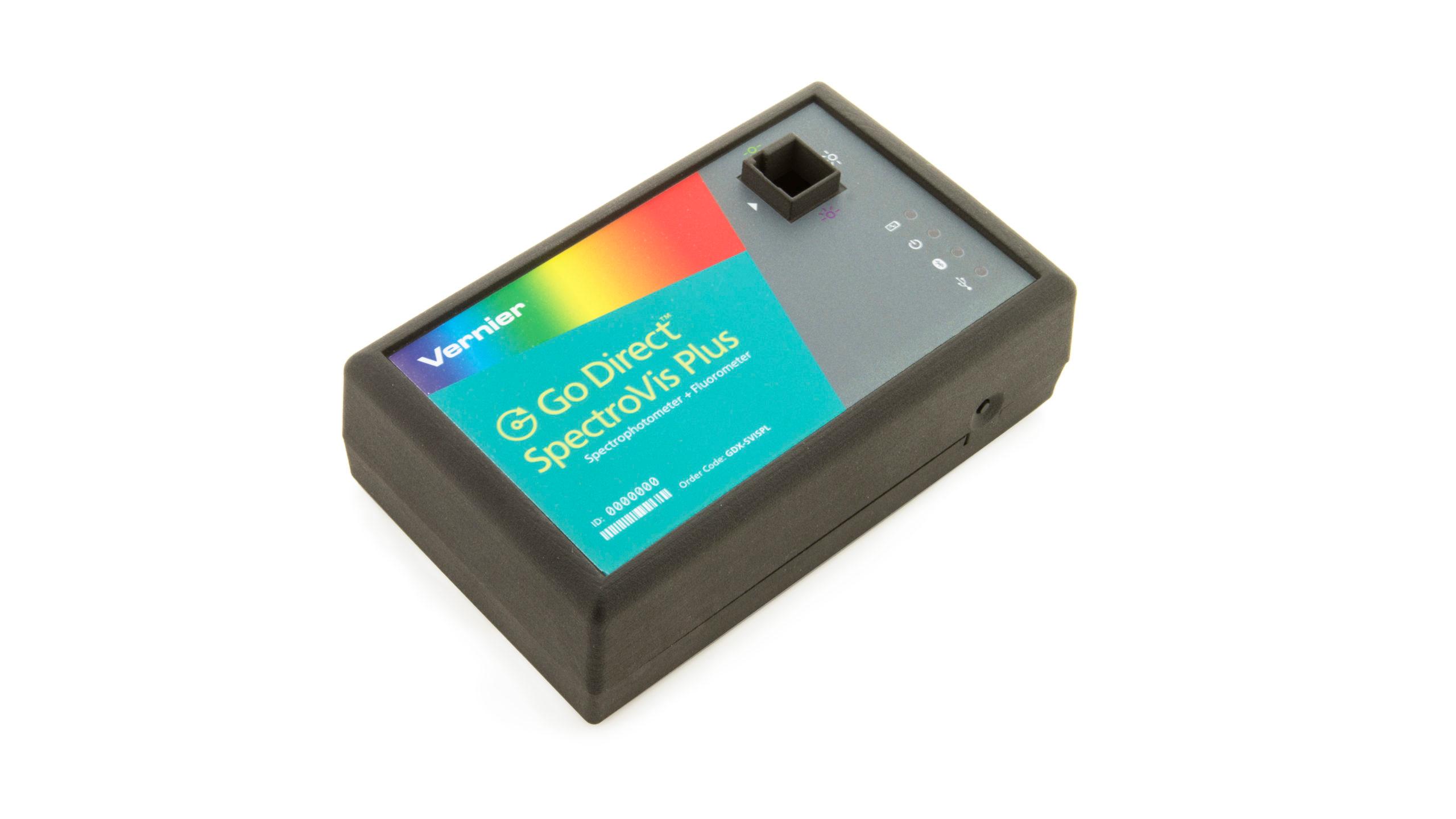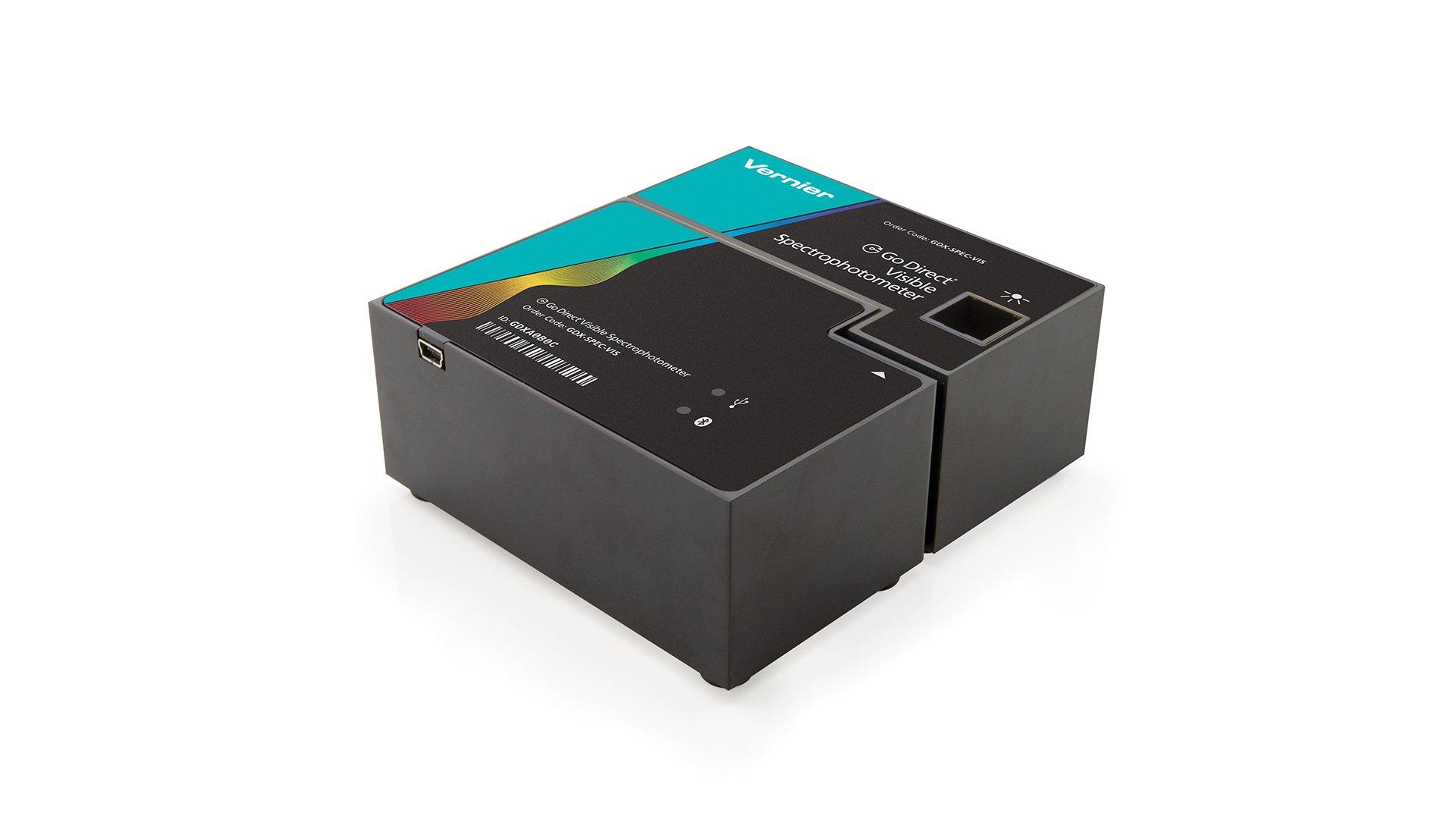Introduction
The primary objective of this experiment is to determine the concentration of an unknown nickel (II) sulfate solution. To accomplish this, you will use a Colorimeter or a Spectrometer to pass light through the solution, striking a detector on the opposite side. The wavelength of light used should be one that is absorbed by the solution. The NiSO4 solution used in this experiment has a deep green color, so Colorimeter users will be instructed to use the red LED. Spectrometer users will determine an appropriate wavelength based on the absorbance spectrum of the solution. The light striking the detector is reported as absorbance or percent transmittance. A higher concentration of the colored solution absorbs more light (and transmits less) than a solution of lower concentration.
You are to prepare five nickel sulfate solutions of known concentration (standard solutions). Each is transferred to a small, rectangular cuvette that is placed into the Colorimeter or Spectrometer. The amount of light that penetrates the solution and strikes the detector is used to compute the absorbance of each solution. When a graph of absorbance vs. concentration is plotted for the standard solutions, a direct relationship should result. The direct relationship between absorbance and concentration for a solution is known as Beer’s law.
The concentration of an unknown NiSO4 solution is then determined by measuring its absorbance. By locating the absorbance of the unknown on the vertical axis of the graph, the corresponding concentration can be found on the horizontal axis. The concentration of the unknown can also be found using the slope of the Beer’s law curve.
Objectives
In this experiment, you will
- Prepare NiSO4 standard solutions.
- Measure the absorbance value of each standard solution.
- Find the relationship between absorbance and concentration of a solution.
- Use the results of this experiment to determine the unknown concentration of another NiSO4 solution.
Sensors and Equipment
This experiment features the following sensors and equipment. Additional equipment may be required.
Option 1

Option 3

Ready to Experiment?
Ask an Expert
Get answers to your questions about how to teach this experiment with our support team.
- Call toll-free: 888-837-6437
- Chat with Us
- Email support@vernier.com
Purchase the Lab Book
This experiment is #11 of Chemistry with Vernier. The experiment in the book includes student instructions as well as instructor information for set up, helpful hints, and sample graphs and data.



